How to avoid disruption when traveling in Europe this summer?
How to avoid disruption when traveling in Europe this summer?
This summer has been plagued by travel disruption across Europe, with airlines and airports struggling to cope with the huge bounce back in demand for air travel after the COVID-19 crisis.
Pictures of long security queues, mounds of left baggage waiting to be reunited with owners, flight delays and cancellations, and also strikes by disgruntled workers have not exactly made going on vacation this summer an appealing prospect.
But are there any ways to get around the chaos? AeroTime takes a look at some options, which may or may not be entirely practical.
Book on Ryanair
Unlike some of its rivals, Ryanair didn’t carry out major staff cuts during the COVID-19 pandemic, instead deciding to cut pay but keep employees on.
That seems to have paid off in terms of flight reliability. According to data from consultancy OAG, Ryanair canceled 0.3% of flights in the first six months of 2022, compared with British Airways’ total of 3.5%, and easyJet’s 2.8%.
“The decision to minimize job losses and keep crew current has been fully vindicated,” Michael O’Leary said in a video presentation after the company reported first-quarter results on July 25, 2022. He said Ryanair expected to operate almost 100% of its summer flights, despite operating at 115% of pre-pandemic capacity.
While Ryanair has been the subject of some strikes in Spain, Italy and Belgium, O’Leary said these were small and most of them, except in Belgium, were not supported by cabin crew and pilots, thus keeping disruption to a minimum.
“We’re suffering more disruptions from ATC and airport staff shortages than anything else,” O’Leary said.
Ryanair returns to profitability during the first quarter of FY2023 but warns of the ‘fragile’ state of the air travel market.
OAG updated its cancellation data in a blog post on July 19, 2022, saying that for the last five weeks, Ryanair cancellation rates had crept up, though passengers were still five times more likely to be canceled on easyJet than Ryanair.
“Both easyJet and Ryanair saw their flight cancellation rates increase, although for Ryanair perhaps a 0.43% rate isn’t too shabby in the current conditions,” OAG analyst John Grant noted in the blog.

Credit: OAG
Don’t fly from Germany
Sticking with the OAG data but comparing the major travel markets of the United States, UK, Spain, France and Germany, Grant said cancellation rates were getting better, notably in the UK.
“In percentage terms, it seems that you are still over three times more likely to have your flight cancelled in Germany than in the United Kingdom but things appear to be getting better,” Grant noted.

Credit: OAG
Those cancellation rates for Germany are sure to shoot up this week after ground workers at Lufthansa (LHAB) (LHA) called a full-day strike as a warning shot in pay negotiations.
The strike on July 27, 2022 forced Germany’s flag carrier to ground virtually all its flights from its main hubs in Frankfurt and Munich, over 1,000 flights in total.
Lufthansa cancels virtually all flights from Frankfurt and Munich on July 27, 2022 after ground staff announce a full-day strike
Fly from smaller airports?
While major airports such as London Heathrow, Gatwick and Amsterdam Schiphol have been capping flights to try and ease disruption, there are some smaller airports crying out for passengers.
The boss of London Southend Airport (SEN), which is located in Essex, to the east of the capital, told Sky News that Southend has spare capacity and has offered to help out by hosting flights canceled at busier hubs.
Pre-pandemic, the airport welcomed around 2 million passengers, but now it is down to just a couple of flights per day.
“We’ve reached out actually, to many of the people who are going to be affected,” Glyn Jones told the broadcaster in an interview on July 23, 2022.
“I think the issue is that it’s just very late for people, so we may be able to play, candidly, a minor role in it, but a minor role is a useful role if it’s your flight that’s affected.”
So, if you are still thinking about booking travel this summer, have a look for smaller airports near you. It might be a less stressful experience!
Can you identify your suitcase?

Credit: Travel man / Shutterstock.com
Many airports and airlines have also been issuing advice regarding luggage this summer. The overriding message seems to be to pack light, to avoid checking in bags. And of course, to make sure you are aware of the rules regarding liquids in hand luggage. The pandemic has not changed those rules and they remain the same as before! In Europe, bottles must be a maximum of 100ml each and they must fit into one clear plastic sandwich bag per passenger.
Fraport, the operator of Frankfurt Airport, also advised passengers to make their luggage more individual. Black suitcases are best avoided, according to the company’s tips. That way, if your bag does fail to turn up on time, it’s easier to identify among a sea of lost luggage.
“Individual stickers, a colorful suitcase band, symbols stuck on with sticky tape, suitcase covers or a piece of ribbon around the handle are all useful,” Thomas Kirner, from Fraport’s passenger communication division, recommended.
Go private?
Not for everyone of course, but if you’ve got the spare cash, then taking a trip on a private jet is a surefire way to avoid airport crowds.
Private jet travel already experienced a boom during the pandemic, with wealthy people looking for a more hygienic way to fly and mitigate the lack of commercial flights during the crisis.
Private charter firm Air Partner (AIR) said it expects the rise in private jet travel to continue this summer, because people are looking to minimize disruption. The company said it was seeing different generations within families, groups of friends or different families teaming up to look at private jet options for their summer getaway.
“As people look forward to their long-awaited getaway this summer, we are seeing an increase in enquiries and bookings from those who would normally fly first-class on commercial airlines, as they explore different options for travel with minimal disruption,” said Kevin MacNaughton, Managing Director, Charter, Air Partner Group. “Compared to July 2019, enquiries are up 20%, reflecting greater awareness of private jet travel.”
The pandemic has brought new customers to the business aviation market, says a firm that brokers private jet charters
How to travel Europe Cheap? 51 Smart and Simple Travel Tips

We love hostels here at Hostelgeeks and would often choose to stay in a hostel over any other lodging option – even if money was no issue. Still, we know that one of the main reasons people often opt for hostels is that they’re trying to save costs on traveling expenses.
Want to travel Europe cheap? Have a look at our ultimate guide to hostels in Europe.
Booking a hostel is a great way to save some money (and have a good time, too!). And if you go prepared with some in-the-know advice, you can save even more money while you’re staying at the hostel. More savings = more travel fun!
Here is a list of the…
to get you started.
That’s why we’re here to help you with our expert tips on how you budget travelers can save money while traveling Europe (and staying at hostels).
Travel Europe Cheap: 51 Tips
Here are all 51 tips in a nutshell. Feel free to skip to ones that catch your eye or continue scrolling through the list.
- Visit during off-season
- Book a hostel with FREE breakfast (before you go)
- Check the tourism board = important! yourself…
- …Don’t cook meals with travellers
- Grab FREE STUFF
- Join hostel events
- Be careful about souvenirs
- …and Google flights for public transport
- Visit free museums
- Avoidpub crawls
- Shop at local markets like a pro
- Go Couchsurfing in advance
- Try the Trail Wallet app
- Speak to hostel staff
- Be smart with currency leftovers (+ $10 discount)
1. Visit Off Season
The prices during off season are significantly cheaper during high season – pretty simple to understand. Let us give you an example:
During August you can easily pay 25€ for a bed at a hostel in Barcelona. During January, the price can drop to 6€-7€. Quite a difference! The same goes for airlines and transport in general.
2. Choose a hostel offering breakfast
Your parents were right – a solid breakfast can help you start the day off right! If you book a hostel that offers breakfast in the price, not only you won’t have to fuss about finding a place that’s open in the morning, but you can also save the money on eating out.
Why? Even though the breakfast might not be included, it is worth it to go for it. Usually it is cheaper than going out, having breakfast at a local café.
Have a look at We Bologna Hostel. Their breakfasts comes only with local, high-quality products. And the coffee? Yes, this is important for us at Hostelgeeks, the coffee is one of the best coffees we had in a Hostel.
The standard (included) hostel breakfast is usually nothing exciting (think toast, juice, coffee, and maybe fruit, yogurt, or cereal if you’re lucky), but some hostels really do go all-out for their morning meal.
Fill up at breakfast and you’ll be ready for a big day of sightseeing!
3. Research free and cheap stuff to do (ahead of time!)
It’s entirely possible to spend a weekend or longer in many major cities and never pay an entrance fee. If you do your reading ahead of time (and by “reading” we mean Googling), chances are you’ll be able to come up with a pretty great itinerary that will cost you next to nothing.
Just walking around a quirky neighborhood can be a fantastic and totally free way to spend an afternoon in a new city!
Look up opening hours and days, too. Often times, museums are free on a certain day of the week or after a certain hour.
Here are a few guides to get you started (they all include free and cheap options):
Need more ideas? Check out all of our travel guides here.

4. Find a free place to stay
Do you have friends or family in interesting places? Plan a trip to visit them, or ask your friends to put you in contact with their friends living in that city you want to visit.
Don’t know anyone? Try to find a host in advance on the following platforms:
Even better! Why not try out house & pet sitting? This means zero rent and bills. Check out our full TrustedHousesitters review.
5. Remember the official tourism board
You should also research offers the local tourism board has. You can usually find this by searching for “visit (city name)”.
Many cities offer some sort of visitor’s card to get discounts on sights, restaurants, and transportation.
Depending on what you’re interested in doing, these can go a long way to helping you save. Be careful though – if you hate going museum-hopping, a card like this may only help you to spend money.
6. Carefully read up on what the hostel includes and doesn’t include
Most hostels nowadays give you sheets for free, but not many include towels as well. Or maybe you’re going to need WiFi for working on the road, but this particular hostel has a paid system.
In our opinion: No WiFi is a no-go!
Knowing stuff like this beforehand can help you to pack sensibly to avoid any extra expenditures at reception.
The hostel website is generally the best place to start looking for this information. Check also major hostel booking sites to read reviews guests have left as well.
7. Find out about potential bank fees
One thing that often comes as an unpleasant surprise to newbie travelers is the fees you can rack up while abroad. Inform yourself about your bank charges in case you use an AT.
Let your bank know where you’re going to be; cards can get blocked for suspicious activity if you haven’t let them know you’ll be on the road.
Boring stuff, we know, but it can save you trouble (and money!) down the line.
8. Cook your meals yourself
A lot of hostels have kitchens you can access – with the basics (oil, salt…) . Cooking at the hostel is a smart way to save money. You can whip up some simple meals at a fraction of the cost it would take you to eat out. Pasta is a staple at many hostels for a reason!
We always love to try the local specialties when we travel, so why not take advantage of the local markets rather than going to a supermarket? You might find some seriously amazing food at rock-bottom prices.
And there is more: Many Hostels offer cooking classes, dinner nights and so on! Join those! They are usually very affordable – or even free. You do not just only save some coins, but also end up making new friends.
Have a look at Hostel Ruthensteiner, one of the top hostels in Vienna, and Ani&Haakien Hostel in Rotterdam. They both offer dinner nights you should join!

9. Don’t cook your own meals!
This sounds paradox, right?! Well, have a look in which destination you are!
In destinations across the East-Europe, and South Europe it can be cheaper to eat out rather than cooking. In Spain you can go for Tapas, in Italy there is the famous Aperitivo.
Get some info at the hostel reception, to get an idea!
Here are some ideas:
-
22 restuarants & tricks – brunch, cocktails and blonde beer

10. Eat out for lunch, not dinner
Okay, and now it gets even more confusing. Lunch is often way, way cheaper than dinner, but you get to eat the same delicious food. If you’re going to eat one meal out per day, choosing lunch over dinner is a smart way to get bargain prices without sacrificing any of the taste.
Especially in destinations like Barcelona, Lisbon, all over Italy, Zagreb and many more destinations, the restaurants have their daily menu. Take this into account!

11. Buddy up with other guests
If you’re already planning on buying stuff to make dinner or to wash your clothes, offer to split the costs with other hostels guests. It’s a great way to save some money and make friends in the process, too.
You can also use this strategy if you decide to go out at night and catch a taxi home. In some cities, if you split the cost of a taxi (or an Uber or Lyft) between a small group, it might actually be cheaper than using public transportation.
Some Hostels have their own black board where travelers can put their itineraries or requests. You can find people looking for sharing a cab to the airport, for renting a car for going to some special place, and so on. Keep an eye on that!

12. Pack some snacks with you
Another way you can reduce food costs?
Pack a few days’ worth of snacks with you! It might sound silly, but if you’re visiting countries with notoriously high prices (Norway, anyone?), you might save some serious cash this way.
13. Don’t be afraid to book group rooms
Not surprisingly, these massive rooms are where the cheapest beds in the hostel are. If it’s your first time booking a hostel, a room with 16 people may sound a little intimidating. If you’re a seasoned traveler, it could sound tiresome instead!
But depending on the season, you may book a bed in a 16-person room and find out that it’s nowhere near being full. It’s luck of the draw, but keep in mind that just because a room can hold 16 people doesn’t mean all 16 of those beds will be booked.
Even if all the beds are booked, you might discover that the room is full of interesting people to make friends with. Or perhaps incredibly boring, quiet, and tidy travelers – the ideal roommates!
In any case, don’t write off the idea of a big shared room. It probably won’t be as intimidating (or tiresome) as you expect.
14. Free stuff that other travelers leave behind
Often times, travelers leave behind bulky bottles of shampoo or leftover food when they leave. Some hostels have a place for this stuff so that current guests can use it.
When in doubt? Ask! Don’t be that hostel guest who sneaks bits of other people’s stuff.
15. Take care of your stuff
You know that saying “an ounce of prevention is better than a pound of cure“? When it comes to saving money in hotels, this definitely applies!
Hostels are generally safe, but you never know if you’re going to end up sharing a room with a traveler with sticky fingers.
We dedicated a full article to the topic “Are Hostels safe?” including 10 tips.
Prevent unnecessary extra spending on replacing stuff by keeping your belongings safe, and avoid traveling with expensive and irreplaceable items. Have a look for lockers! Those are usually the best way to keep you valuable belongings safe!
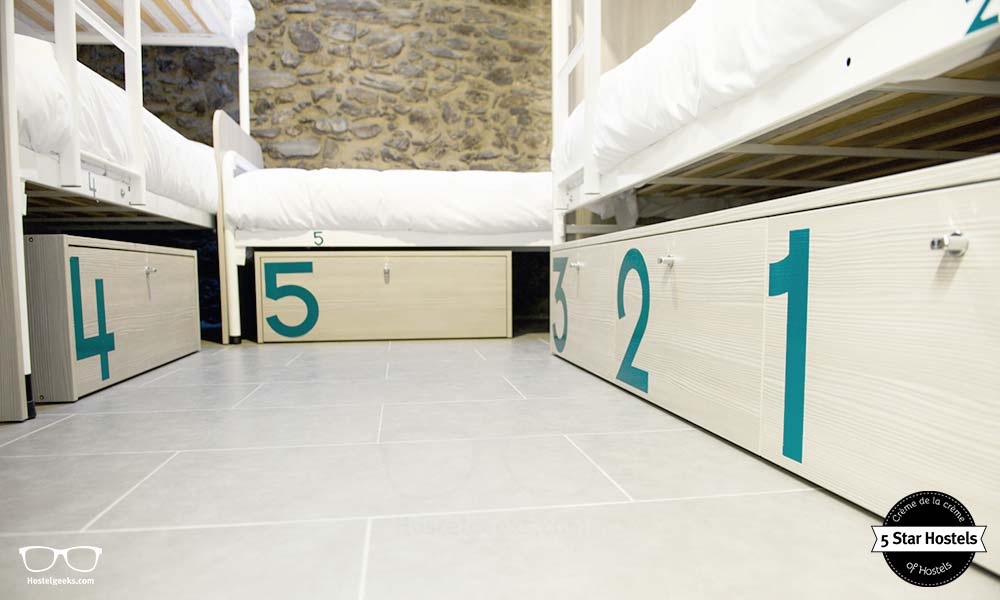
16. Stay in smaller, less touristy cities
Touristy cities are normally more expensive than they eclipsed neighbor cities. Thinking about visiting Venice? Consider staying in Mestre, the city next to it, well connected with the train.
Here’s our full guide to the best hostels in Venice, including 5 star Combo Hostel.
If you plan only to stay in the city during the day, consider stay in a nearby and less touristy city. But, if you want to take advantage of the nightlife in the city you are visiting make sure beforehand there is a way to come back to your accommodation with public transport.
If not, this saving trick can actually add up some extra cost.
17. Consider Cheaper Countries
How about Albania, North-Macedonia, Bosnia and Herzegovina, Poland?
They are incredible countries and have so much to offer! Actually, Montenegro is of my favorite countries in Europe… Good food, plenty of beautiful landscapes with affordable prices and few touristy spots.
18. Special Events going on at the hostel
On the note of making use of the hostel staff, don’t forget to ask them if there are special events going on.
Maybe the hostel will be throwing a barbecue that’s free for guests, or there will be a drinks offer for happy hour that can help you save money instead of going out.
Hostels sometimes also have discounts for certain tours or activities, like bike rentals.
Generally, the stuff that’s going on will be budget-friendly – and a lot of fun, too!
19. Avoid Souvenirs aka. be creative with your souvenirs
Another budget travel tip to save money and space in your backpack/luggage. That does not mean you should not take memories! Maybe you need a new shirt? Buy one in the city you just felt in love with.
We are not talking about a city-themed tourism shirt á la „I love London“.
Even a regular grey shirt bought at a store turns into a souvenir.
20. More slow travel
Moving slower is cheaper!
When traveling Europe, there is no need to jump from one city to the next. Instead, take a deep breath, and plan a few more days in one destination! This will save you especially some travel money on the transport.
Think about it. Your travel expenses are mainly:
- accommodation
- transport
- activities
Food does not really count fully as an expense. After all, you would need to eat at home as well. Sure, when you eat out and try local dishes and stuff, this is an expense.
However, transport is something you can really save money on by simply not jumping on a bus or train every 3 days instead of each day.
21. Transport: Compare City Passes and offers
Many cities offer a city pass that includes transport, museums, …even some free drinks in certain restaurants! Have a look at these offers carefully because sometimes they are really a good deal.
I remember the first time I visited Amsterdam I bought the Amsterdam card and used it a lot. I can tell you I saved a lot, cause I visited many museums.
Over at GetYourGuide you can buy city cards in advance.
Sometimes it is also worth it if you just visit 2 museums and have unlimited public transport included.
You just have to be clear on what you would like to visit, what do these passes offer and decide if they are worth it for your trip or not.
22. Subscribe to Airlines…
In Europe, many airlines offer incredible great deals! We scored flights to the Canary Islands for only 25€, to London for only 17€, and to Paris even less: 12€!
The fastest and easiest way to find those cheap flights are the newsletter of the cheap airlines across Europe! Sign up for Ryanair, Norwegian, EasyJet and Vueling. You will be surprised.
Helpful: an honest review of Kiwi.com for finding flights.
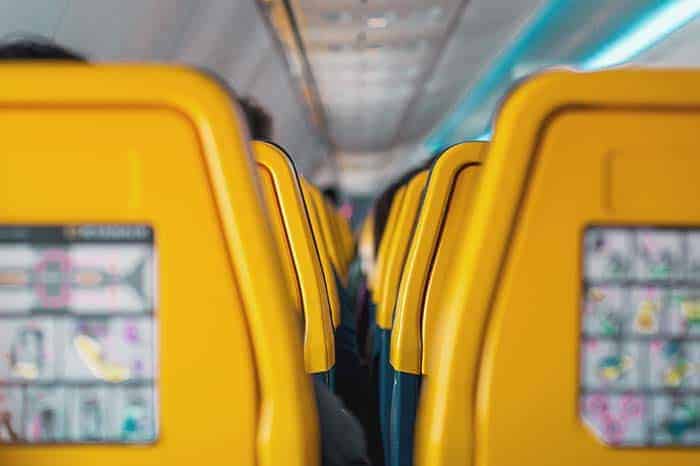
23. …and Google Flights
Google Flights: This one is one of the best budget travel tips out there – seriously!
Google flights shows you the cheapest flights from your destination. Just pick your airport, budget and dates. And the magic will appear in form of itineraries.
You can also set up alarms when prices go down a certain amount, or just have a watch list of desired destinations.
24. Stay out of the city center
Show us a city center which is NOT more expensive than the suburbs! Having a caña (beer) around Plaza del Sol in Madrid is more expensive than the other parts of town. Makes sense right?! At restaurants, bars, cafés and so on you usually pay for the location as well.
So don’t get a coffee in front of the Eiffel Tower, the Big Ben or the Colosseum.
25. Avoid roaming fees
Cell phone roaming charges is a big cost that can really leave your wallet reeling.
Check in with your cell phone provider so that you can be informed about potential fees.
If you want to save money while traveling on your cell phone, the easiest way is to always use WiFi. Most hostels nowadays offers it with no extra cost.
It is also a good idea to buy a SIM card from a local cellphone service provider when you arrive.
In Europe, there is a free roaming policy, meaning, if you have bought a SIM card in Spain, you will be able to use it in France, Uk,… with no extra charges.
However, things are getting also complicated in some countries, like Germany, where you can only buy a SIM card if you have a permanent address (they will send the SIM Card to you in around 2 weeks).
As for a great pocket WiFi in Europe, we tested the Hippocket WiFi. It is fast, cheap and simple to use! Check out our full review about Hippocket WiFi Europe here.
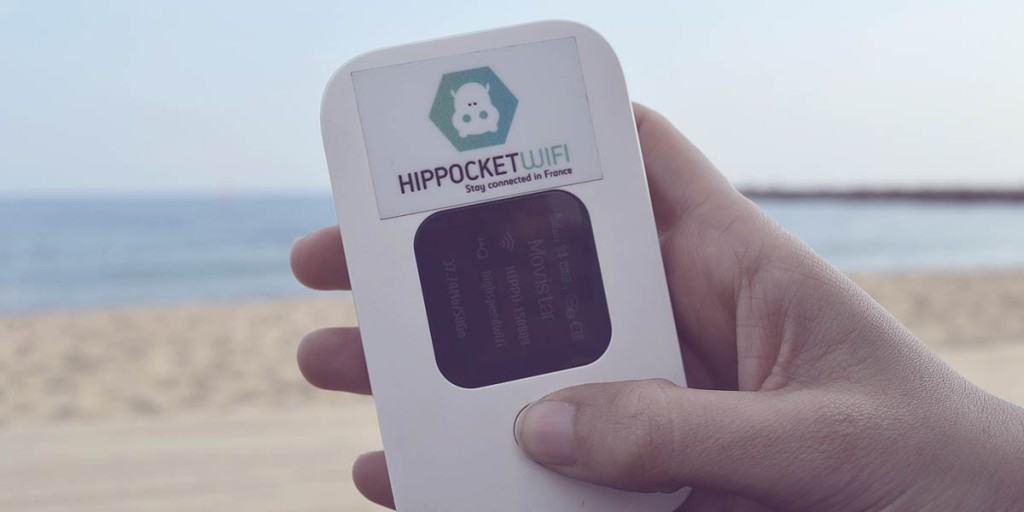
26. Search for „Free Things to do in …“
Pretty basic, right?!
Head over to Mr.Google and type in „Free Things to do in“ + destination. You will most likely find plenty of websites talking about this.
And even better: Don’t stay only on the first page. Go for the 2nd, 3rd and 4th page on Google. This is where you can find smaller websites talking about slightly different free things to do in that place you want to discover.
Here on Hostelgeeks we have free guides:
27. Walk more!
A friend of us walks everywhere! It can be quite annoying at one point, but he claims he sees way more of a city when he just keeps walking. Take this into account before paying for…
28. Avoid Cabs
Unnecessary cab rides! Sure, those cab rides can be a unique experience itself. Especially when the taxi drivers decides to hunt down a Iguana for dinner!
So, try to avoid cabs and you can save some money.
29. Rent a bike
More than walking, we love to rent a bike! Especially in bike-friendly cities like Haarlem, Amsterdam, and Barcelona, you can rent a bike for a few coins. You can discover the city in no time.
However, please make sure you make yourself familiar with the local rules and traffic.
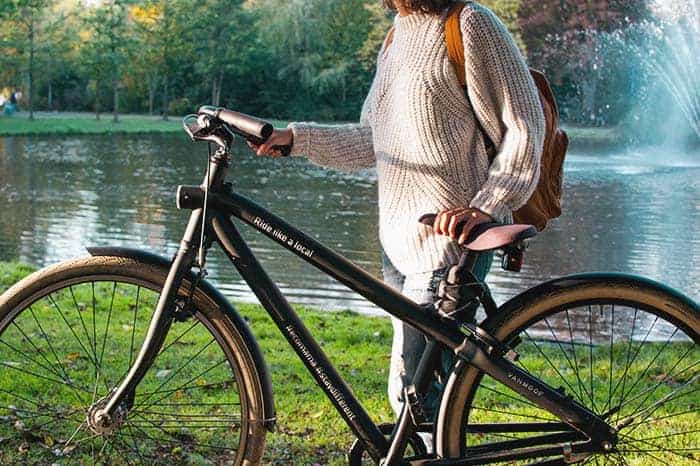
30. Have a look for discount cards for public transport
When buying your tickets for public transport, have a look if there are special offers for tourists visiting a couple of days. Also, some cities offer bonus tickets, students discounts…
31. Get to know the days for visiting museums for free
In Europe, the Sunday is usually the day to visit a museum for free. The official tourism board of the destination is here the best place to get a quick answer to this.
32. Check free concerts by local bands
Try to figure out which websites the local use to find local concerts. Facebook is also a great tool to get ideas for events across a city.
33. Have a picnic in the park
Picnic is always a great idea. Buy some food and drinks at the supermarket, sit down at a public park, beach, mountain, … and enjoy your time. You are on holidays!

34. Avoid Pub Crawls
Fair enough, it is a different experiences to go for a pub crawl or join some tours to discover the nightlife. They can be pretty cool.
However, if you really travel on budget, avoid them. If you feel like a drink, go for it with fellow travelers. This is usually cheaper.
35. FourSquare Discounts
It is a good thing the app is not that popular like TripAdvisor or other huge platforms/ Apps. You can search on foursquare for places with special offers e.g. a free drink by checking in, 10% discount on the daily menu and so on.
Another big advantage: People love to rate the locations and create their own lists for food, bars, things to do, .… So, hope over to FourSquare and search for such lists and use the recommendations.
36. Shop at Local Markets (okay okay…not always cheaper!)
BUT: You can really score some big points and sweet deals. Obviously, we are not talking about the popular tourist markets here. The local markets have local prices, and you can sometimes have a free sample before buying.
37. Book your Hostel like a pro
There are many ways to book a hostel in a cheaper way. We created a special article about this including 11 booking hacks for hostels.
38. Check out local travel blogs!
Maybe there is a travel blogger living in your next destination? Check out her/ his blog!
There you can usually get some good ideas on things to do and some local tips for transport, restaurants, and special offers. Really good resource not to underestimate!
39. Free Tours!
Free Tours are tip-based tours by locals or expats showing you around the city. Some of them are basic walking tours, other can have a special theme.
Highly recommended to get a basic idea of the cities infrastructure, and history background.
Popular Free Tours in Europe are for instance Sandemans Free Tours. Here you can find a huge list of free walking tours across Europe.

40. Use Couchsurfing for Events
Couchsurfing is more than free accommodation.
It is a community of like-minded travelers. In big cities such as Barcelona, Paris, Madrid you can join plenty of couch surfing events. Usually those events are free and hold in places on budget.
Get a drink for a locals price and mingle with expats, locals and other travelers from Couchsurfing.
41. Book transport in advance (or simply online!)
SOME transport companies offer cheaper prices when booking online and/or in advance. Buses, ferries, planes, trains, …
In Croatia we booked our ferries ahead of time, and saved up to 30%. Pretty simple!
A lot of companies offer up to 20% discount when booking online. This is all you need to do: Book online!
Check out Flixbus – a bus company connecting many European cities. We wrote a big review of Flixbus here.
Also, don’t forget about possible onward ticket requirements! Some countries expect to see proof of an onward flight ticket to your next destination before they let you in. No joke.
Onward Ticket is where you can book a $12 flight ticket to use as proof, even though you don’t intend on using it. And yes, it’s completely legal. Here is our full review of Onward Ticket.
42. Share a ride
To get to some places that have fewer connections, try a carsharing service.
BlaBlaCar works quite well in Europe!
We used it from Barcelona to Marseille, from Marseille to Zurich…. and met many interesting people. I recommend you to see the driver reviews and other information. Also important: be easy on your plans so you can find a ride easily.
43. 5€ can be more than 10€ – Spend your money wisely
Traveling on a budget means you have to make choices. No private room, but therefore only a 4-bed dorm. However, there are situations where you should spend more and go for it. It is called investing. Other moments you should give it a pass.
When it comes to a unique tour you really want to take for whatever reasons, you should do it. You can save the extra coins you spend here later on sacrifice a bike rental or going for a drink.
44. Take Overnight Trains/ Buses
Here you save accommodation for a night.
Especially in expensive destinations, this can be a good money-saver.
Have you heard of Omio? This website is great for booking affordable transport in Europe. From busses, to trains, to planes. Here’s our full review of Omio.
45. Make sure you are insured
Before buying any insurance, make sure you don’t have any.
If you are a European citizen, you are covered while traveling in Europe. kindly check that with your social security system and make sure you have all the papers (or card) you need with you before your trip. When traveling without these papers or card you will have to pay for your medical expenses in the country visited.
Also, if you have a private medical insurance, it might cover you while traveling abroad.
Not covered? Then consider getting a travel insurance. What looks like an extra cost can save your but in case of emergency.
Read: our reviews about WorldNomads and Safetywings.
46. Trail Wallet App – Keep track of your money
The ultimate budget travel tip: Know your wallet and bank account.
The App Trail Wallet is the best travel app we love to use here at Hostelgeeks. You can easily keep track of your money. You can split your expenses in categories:
- Accommodation,
- transport,
- food,
- entertainment,
- and so on.
It allows you as well to export your export your trip data to an excel file, or you can just see the charts they create to see how much do you spend on each category.
Give it a try, we really like it.
47. Take a Tent!
We asked as well Steph from Big World Small Pockets about her best Europe Travel Tips to save money.
This is what Steph said:
The number 1 item I always advise people to take if they’re looking to save money and travel more frequently, is a tent. This is one of my more unusual travel tips, but it can save you a fortune on accommodation costs. Nowadays, many hostels have camping spaces, which means you still get to enjoy all the amenities they offer, just at a cheaper rate. Tents also allow you more personal space than a dorm room and often you can camp in the hostel garden, which usually means a nicer set of surrounds than a 16 bed shared room!
Besides Europe, Australia, New Zealand and South Africa have lots of hostels with camping.
48. Don’t sit for a coffee
In Italy, there are three prices for coffee.
One is for sitting down (the most expensive option), while the second option is drinking the coffee at the bar – medium-priced. The cheapest option is ordering the coffee for take away. And score: this is the cheapest way to do it!
Note: bring your own reusable (and collapsible) cup to reduce plastic.

49. Make good use of the hostel staff’s resources
One of the best ways to get great insider advice on your destination is to ask the staff at your hostel. Seriously! This way we found so many hidden gems in Rhodes and got fantastic travel tips for Bologna.
Chances are, they’ll be more than happy to help you out with suggestions on what to do, see, eat, and drink (particularly if it’s one of the 5 Star Hostels).
If you’re on a tight budget, then go ahead and let your hostel staff know that when you’re asking for tips. Maybe they know about a super cheap and super tasty local restaurant, or they might be able to let you in on the secret to getting discounted entry into tourist sights. It never hurts to ask!
50. Pay attention to currency leftovers
Be careful and plan your expenses so you do not have high currency leftovers. When traveling around Europe, you might encounter different currencies:
- Switzerland: Swiss franc
- Croatia: euro
- Albania: lek
If you have currency leftover, bear in mind banks will only accept to change bank notes. So, be smart about your currency leftovers and spend them in snacks -specially if you are traveling from a cheaper country to another with higher prices- or try to change your coins in the hostel with other travelers or in the reception.
51. Volunteer
This is a great way to save money, to meet new people and generally have a lot of fun!
Worldpackers is a fabulous platform for finding a wide range of volunteering opportunities in Europe, and across the world.
It’s a community, too. So not only can you try new things, but you can also learn new skills from their online academy and read many useful blogs.
Since 1st April 2021, new members will recieve an extra 3 months added to their plan, meaning 15 months of access to the community for a price of 12 months. Not only that, but we’ve teamed up with Worldpackers to offer you a further $10 discount. You’re welcome.
We’ve written a huge review of Worldpackers so that you’re fully in the know before you sign up.
Psst! Make sure you use discount code “Hostelgeeks” when signing up.
Read our indepth article on how to travel the world for free for more information about Worldpackers + comparison of other major volunteer platforms.
Summary of traveling Europe cheap
So here you have more than 50 tips to travel Europe cheap. I am sure there are some other tricks that I might have forgotten to add in my list, so don’t be shy and share them with us all.
Also, some of these tips can be applied internationally, not only in Europe.
Of course, staying in hostels is our number 1 trick. Hostels are a great place to meet other travelers and like-minded people.
Wanna more info about traveling around Europe? We have plenty, such as:
Best Travel Websites we recommend ❤️
(Fresh Update 2022)
Booking Hostels and Discounts
As a user of Hostelgeeks, you also have access to exclusive hostel discounts. For booking hostels, there are three sites you need to use:
-
– hostel price comparison
We recommend installing the Hostelworld App. It is very handy!
How to find cheaper Flights ✈️
The first websites you should check are Skyscanner, Kiwi.com, and Google Flights.
In our review about Skyscanner we walk you through the entire process how to find cheaper flights and how to reserve.
Travel Insurance made easy
We have used World Nomads on our travels around South East Asia and Europe.
We are currently using Safetywing and Iati Seguros. We wrote detailed guides about these insurances:
- Our review of Safetywing, compared with World Nomads.
- a detailed review of World Nomads Insurance
Smartest Travel Tools you need to know
-
– get a proof for onward travel – get your visa online fast – for activities and sightseeing tickets – for all types of transport
Get your Smart Packing List (Free Printable)
Knowing what to pack and what not pack is essential. For instance, you need a one-fits-all padlock.
European Summer Travel? It’s Way Too Early To Tell…
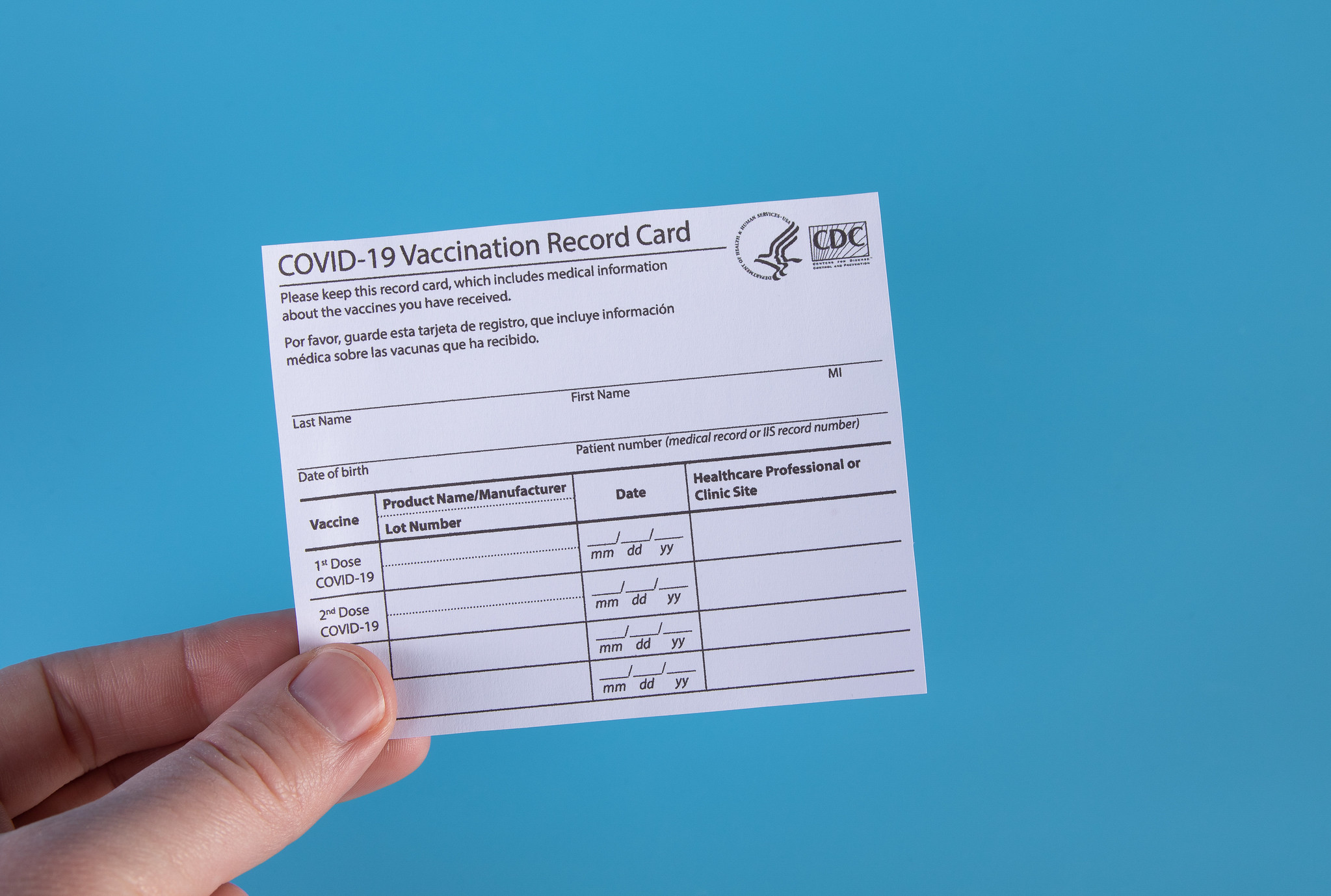
Earlier today I wrote about plans to re-open the European Union to American tourists this summer. While that sounds amazing in theory, much of Western Europe is under lockdown again as a third wave has brought a tidal wave of cases and deaths.
Caution: It’s Too Early To Know If European Summer Travel Will Take Place
In India, the pandemic is so bad that some media outlets are pausing coverage of cricket, deeming it wholly inappropriate as patients are dying waiting to get into hospitals or sharing scarce bottles of oxygen. While Europe is not at that level, Germany just shut down again and plans to remains closed until June. Parts of France and Italy are in lockdown as well.
Cases are also on the rise again in the Netherlands, Poland, and Croatia (but on the downturn in warmer Portugal and Spain).
With that backdrop, is it even reasonable to think about traveling to Europe as an American tourist this summer? Even if European borders are open, will restaurants, bars, and museums be open?
The answer is simple: it is too early to tell. Yet it is prudent to consider this carefully if you are considering booking travel in light of the latest news.
European leaders hope that the current shutdowns will allow for full summer re-openings, less so for American tourists than to allow European citizens to enjoy summer holidays after over a year of shutdown.
But even as progress on vaccinations is being made, there are still so many unknowns. Although European Commission President Ursula von der Leyen indicted optimism that Europe would re-open to tourism this summer, she warned that actual re-opening will depend upon the “epidemiological situation.”
Currently, nonessential travel is banned in most EU countries (Greece and Iceland are the exceptions). Travel restrictions and lockdown measures will continue until numbers drop (and they are moving in the wrong direction in Germany and France) and questions over vaccine certificates or vaccine passports (digital green certificates) remain unresolved.
My Advice: Wait Or Book With Miles
While I tend to think Italy and France will re-open this summer, I’d still be cautious before tying up thousands of dollars in revenue tickets to travel there.
Should you buy a restricted ticket and travel restrictions not be lifted, the best you can hope for is travel credit (unless the flight is cancelled). Visa restrictions are generally not sufficient grounds to trigger a refund.
Thus, I recommend you use miles (which tend to be much more flexible) or simply hold off on booking for now. Until case numbers and deaths start to drop in Europe, I just would not book if you plan to enter on the basis of your United States passport and vaccination card.
CONCLUSION
I certainly hope Europe will be open to American travelers this summer. At this point, however, I would not bet on it…the numbers in key nations remain a concern.
Source https://www.aerotime.aero/articles/31735-how-avoid-travel-disruption-europe-summer
Source https://hostelgeeks.com/how-to-travel-europe-cheap-travel-tips/
Source https://liveandletsfly.com/european-summer-travel/